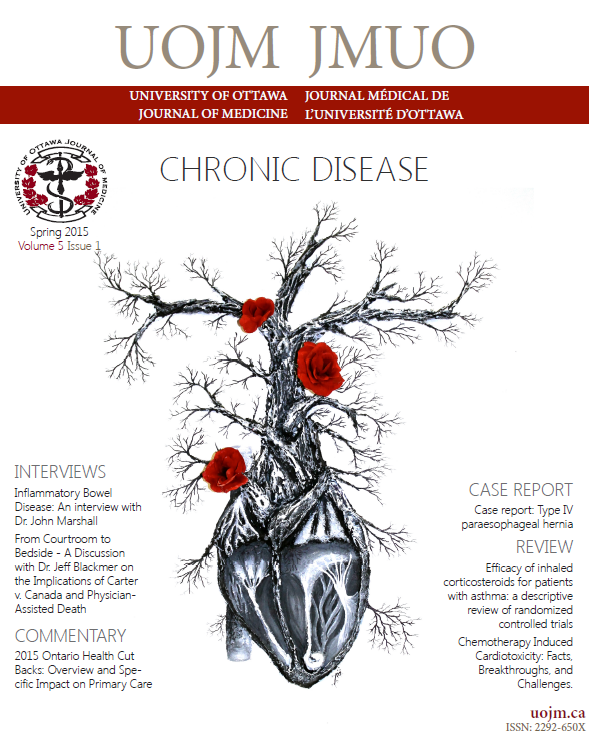Chemotherapy Induced Cardiotoxicity: Facts, Breakthroughs, and Challenges.
DOI:
https://doi.org/10.18192/uojm.v5i1.1331Abstract
Chemotherapy involves the use of one or more cytotoxic drugs to kill rapidly dividing malignant cells. One of the most promising fields of chemotherapy is the so-called targeted therapy, where a group of antibodies and small-molecule kinase inhibitors are designed to target key proteins involved in growth and proliferation pathways. Today, targeted therapeutics, such as Imatinib mesylate (Gleevec), have radically transformed the treatment of solid tumors and some blood malignancies. Unfortunately, the emerging chemotherapy associated cardiotoxicity posing unexpected challenges that may limit effective use of these novel drugs. Drug-induced cardiotoxicity is associated with cardiac cell death, cardiac dysfunction, and can lead to life threatening heart failure. The mechanisms underlying this cardiotoxicity remain poorly understood. In this review we discuss the cardiotoxicity of some of the major anticancer chemotherapy drugs, and summarize recent insights into the mechanisms implicated in cardiac cell death and survival.
Downloads
Published
Issue
Section
License
- Authors publishing in the UOJM retain copyright of their articles, including all the drafts and the final published version in the journal.
- While UOJM does not retain any rights to the articles submitted, by agreeing to publish in UOJM, authors are granting the journal right of first publication and distribution rights of their articles.
- Authors are free to submit their works to other publications, including journals, institutional repositories or books, with an acknowledgment of its initial publication in UOJM.
- Copies of UOJM are distributed both in print and online, and all materials will be publicly available online. The journal holds no legal responsibility as to how these materials will be used by the public.
- Please ensure that all authors, co-authors and investigators have read and agree to these terms.
- Works are licensed under a Creative Commons Attribution-NonCommercial-NoDerivatives 4.0 International License.


